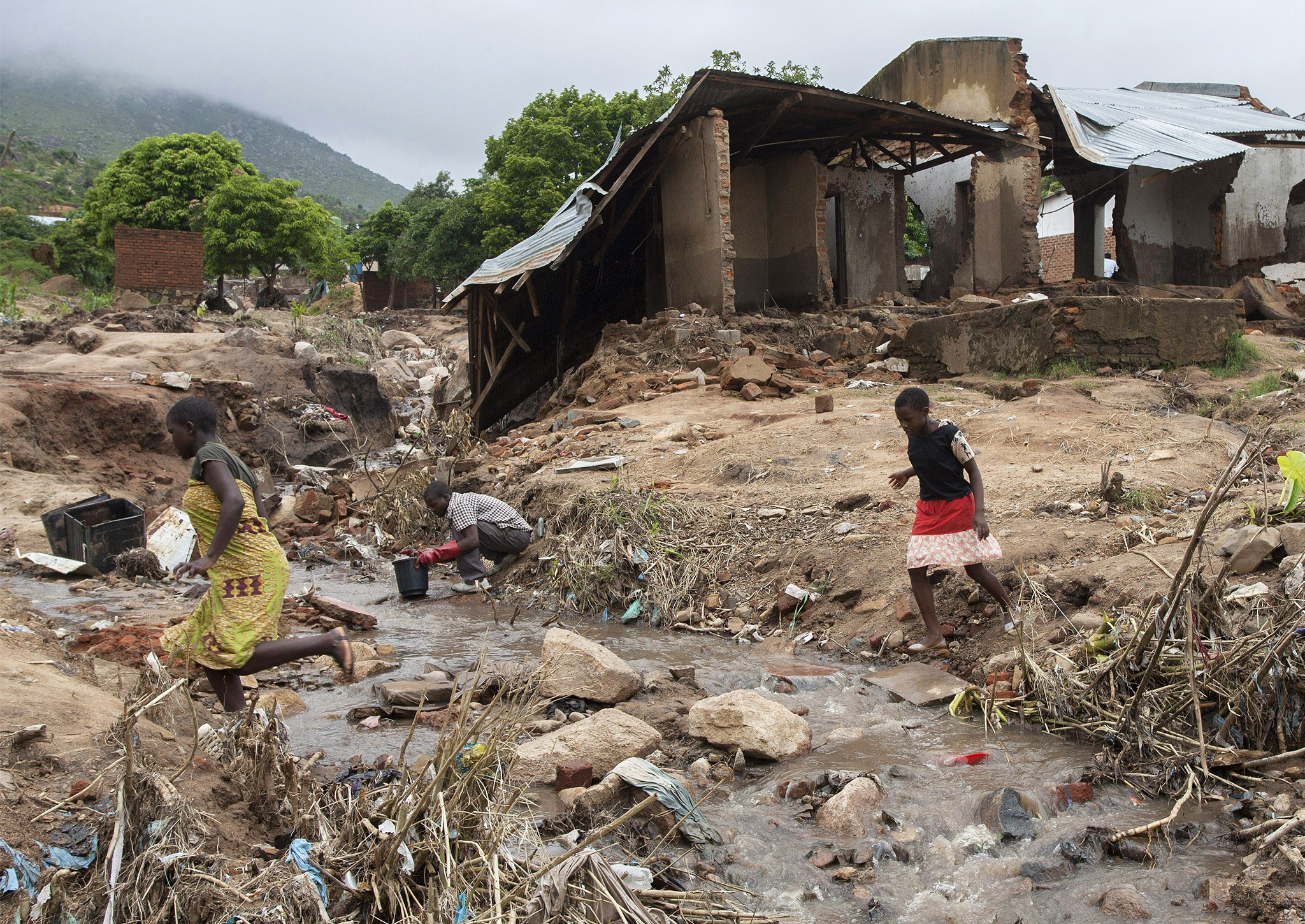Children in Malawi can't afford soap, let alone tweet about the floods that are destroying their lives. So should we just ignore them?
I've seen first-hand how devastating the recent floods have been, especially on the young

In Malawi two weeks ago, roads turned into rivers, rivers swallowed fields, and a cyclone razed hundreds of thousands of houses to the ground. People clung to termite mounds or huddled in churches as their homes and livelihoods were swept away.
It's impossible to secure an exact death toll, since countless mortalities will have gone unrecorded in remote rural areas. Estimates hover around 200, although this seems optimistic.
Queen Elizabeth Hospital in Blantyre is full of children weak from a crushed limb or malaria, and blood supplies are so low that doctors themselves are having to donate.
President Peter Mutharika has declared half of Malawi a disaster zone and appealed to the international community for support. But we have been slow to acknowledge the crisis, let alone respond.
I teach at Jacaranda School for Orphans in Chigumula Village outside Blantyre, one of the worst-hit areas. Over three-quarters of my students’ houses have collapsed since they could only afford the most basic building materials: sunbaked bricks and straw roofs.
Since the rains many children have had to pile into another relative’s house. Now the average two-room house holds over 20 people. The overcrowding, combined with collapsed latrines, has made malaria worryingly common in my classroom, and many fear that cholera might be next.
Some students sleep on a neighbour’s floor; for many more a bar of soap has now become an unaffordable luxury. Soap costs the equivalent of 4 pence, a testament to the horrifying reality of their poverty. More devastatingly, a fallen wall exposes maize-flour to the rains. Maize is the food of basic subsistence in Malawi. Without their morning porridge and evening nsima, people starve.
My students cannot post selfies of themselves on Facebook, or tweet, or gain access to any global forums to express themselves. Does that mean that we should turn a deaf ear to their stories?
Tawina is 17, in his last year of school, and a keen Historian. He has often initiated discussions with me about “the History of everybody’s lives”, and is especially interested in the Wall Street Crash.
To get to school he must wake up at 4.00am, shimmy down a 15 foot ravine and wade across a well-fed river to check that it is safe for the rest of his village to cross.
He does this in broken shoes, since his own were stolen when his house collapsed. I stood with him on the rubble he once called home, and he produced Walsh’s Guide to Modern European History. He had kept it in pristine condition by wrapping it in a discarded plastic bag and hiding it under the table. “Therefore it was protected Madam, and when my house fell, nobody would be seeing it to steal it.”
Tawina’s interest in the Wall Street Crash denotes a sense of solidarity across continents and cultures. For him, the devastating effects of loss are universal. By being attentive to calamities in Western history, Tawina has sensed an inexplicable connection between “the History of everybody’s lives”. We should repay the favour.
To find out more about Jacaranda School for Orphans, or to donate on line, please click here. All money goes directly and solely towards emergency relief and rebuilding houses.

Join our commenting forum
Join thought-provoking conversations, follow other Independent readers and see their replies